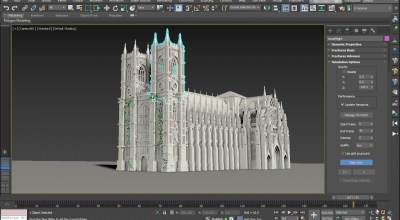

In May 2002, Roosendaal started the non-profit Blender Foundation, with the first goal to find a way to continue developing and promoting Blender as a community-based open-source project. This also meant, at the time, discontinuing the development of Blender. After NeoGeo's dissolution, Ton Roosendaal founded Not a Number Technologies (NaN) in June 1998 to further develop Blender, initially distributing it as shareware until NaN went bankrupt in 2002. NeoGeo was later dissolved and its client contracts were taken over by another company. On January 1, 1998, Blender was released publicly online as SGI freeware. Some of the design choices and experiences for Blender were carried over from an earlier software application, called Traces, that Roosendaal developed for NeoGeo on the Commodore Amiga platform during the 1987–1991 period. The name Blender was inspired by a song by the Swiss electronic band Yello, from the album Baby which NeoGeo used in its showreel. The version 1.00 was released in January 1995, with the primary author being company co-owner and software developer Ton Roosendaal. The Dutch animation studio NeoGeo (not associated with the Neo Geo video game hardware entity) started to develop Blender as an in-house application, and based on the timestamps for the first source files, Januis considered to be Blender's birthday. 11.6 Cosmos Laundromat: First Cycle (Project Gooseberry).

11.3 Yo Frankie! (Open Game Project: Apricot).close print ( '完成' ) #+= def jx (): with open ( input ( '文件名' )) as f : data = f. split ( ' \n ' ) a = 0 i = open ( '错误.txt', 'w' ) for line in t : try : os.

read () with open ( '路径.txt', 'r' ) as w : r = w.

Import os import time import shutil def dup2 (): with open ( 'dup2.txt', 'r' ) as q : e = q.


 0 kommentar(er)
0 kommentar(er)
